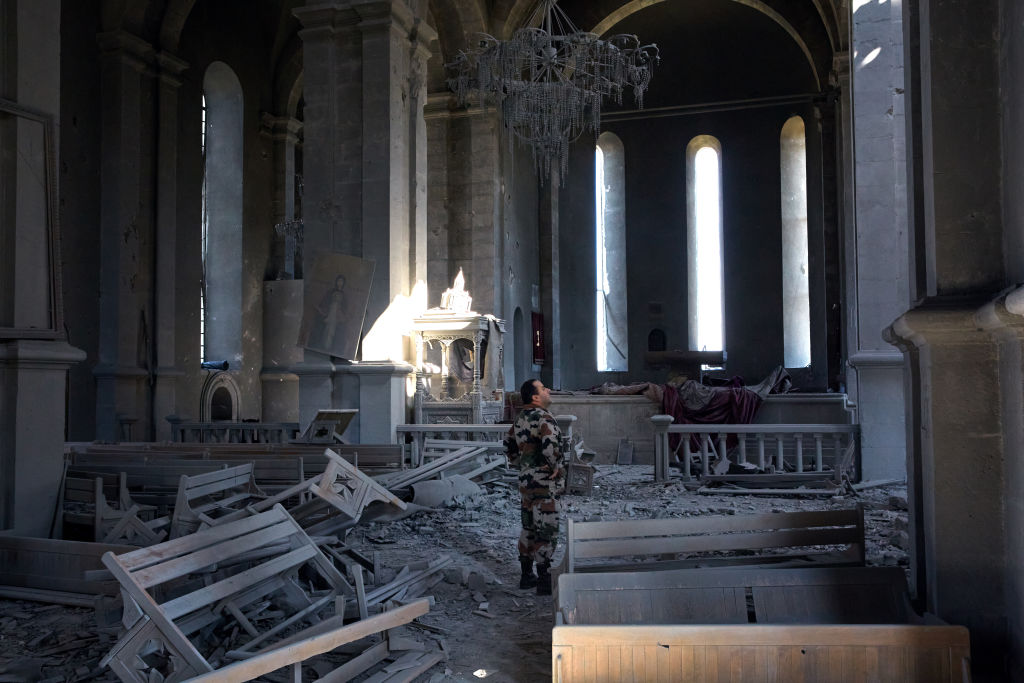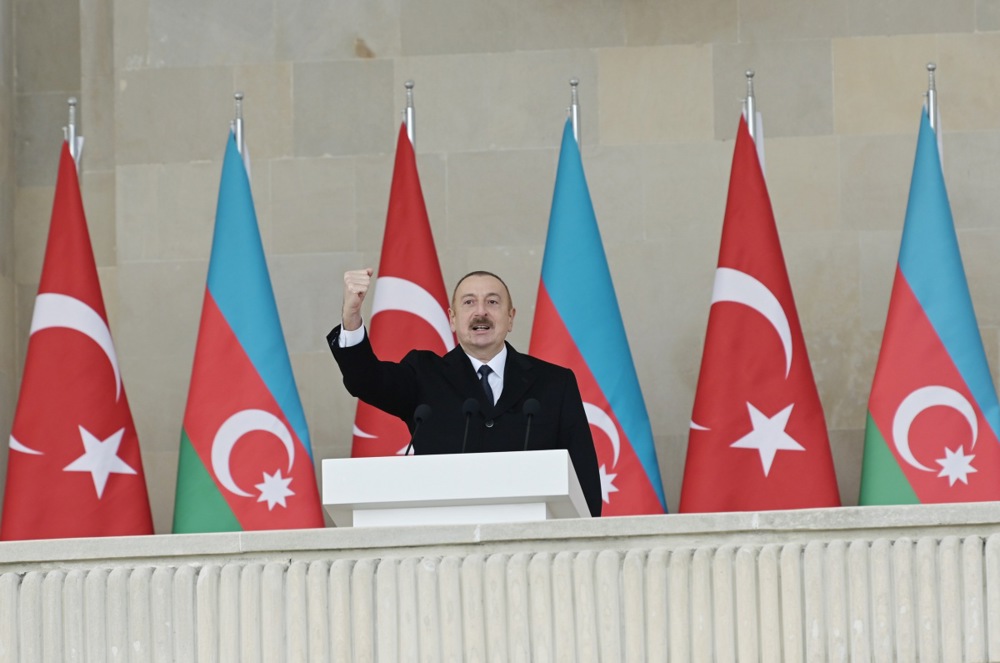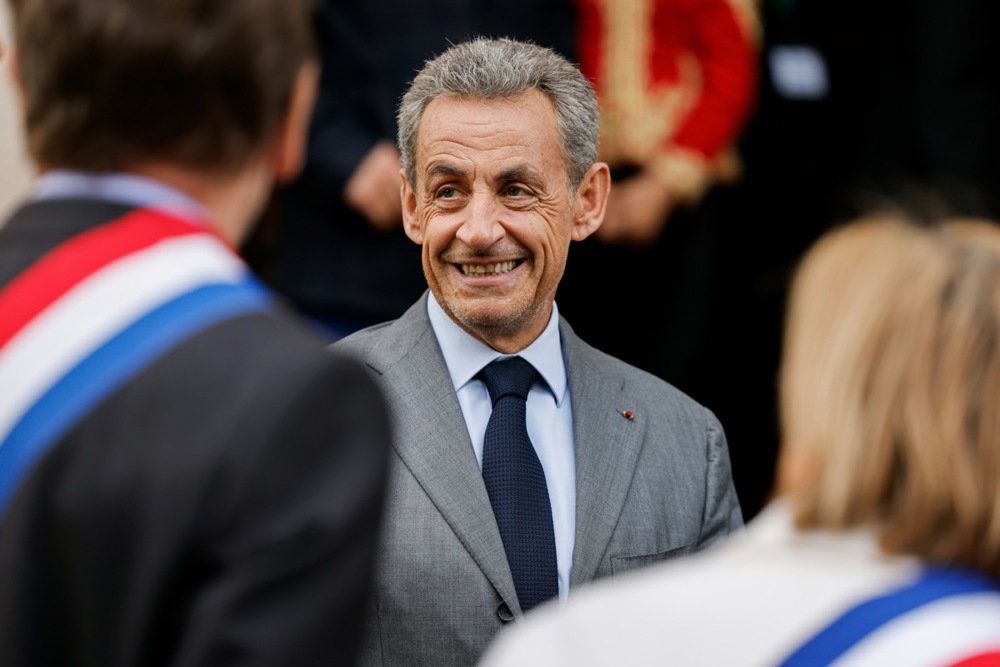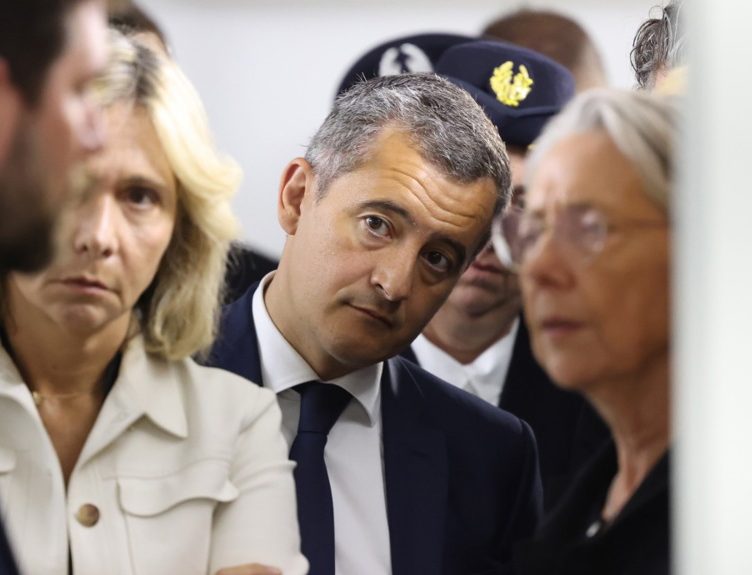The Belgian foreign minister has been snubbed by Azerbaijan after she expressed humanitarian concerns over the besieged Armenians in Nagorno-Karabakh, the landlocked region in the South Caucasus.
Hadja Lahbib, who has served as foreign minister for a little over a year now, is currently taking a four-day tour of the Southern Caucasus in an effort to broker peace in the highly conflicted region.
It appears that the Azerbaijani President Ilham Aliyev was not pleased with her views on the ongoing situation in the west of Azerbaijan, where 120,000 ethnic Armenians are currently cut off from electricity and vital supplies.
While visiting the Azerbaijan capital Baku on August 24, the minister’s planned meeting with Aliyev did not take place, although the Belgian newspaper Le Soir reported that Belgian sources claimed that was due to scheduling changes.
Azerbaijani news source Trend claimed that the cancellation was because of the “pro-Armenian position” Lahbib held and the “unfounded statements” she had made while visiting Armenia the previous day.
Meeting with high-ranking officials, including Armenian Prime Minister Nikol Pashinyan, she seized the opportunity to address the humanitarian crisis unfolding in Nagorno-Karabakh. Her appeal for unrestricted access along the vital Lachin Corridor garnered significant attention, underscoring the plight of thousands trapped in a blockade of the pass.
I also addressed the situation in the former Nagorno-Karabakh Autonomous Oblast. The only viable path to peace is through dialogue and compromise. I reiterated Belgium and the European Union's commitment to promote a negotiated solution. (2/2) ???? pic.twitter.com/Ql2SLn7s6L
— Hadja Lahbib (@hadjalahbib) August 22, 2023
Lahbib’s daring step into controversial issues appeared to fuel the flames; paying homage at a memorial for Armenian genocide victims in the early 1900s, she became the first Belgian foreign minister to do so since Belgium officially recognised the historical tragedy.
The brewing storm took an international turn when Lahbib then advocated for dialogue and compromise as the path to lasting peace in the region. The European Union and Belgium echoed her calls, urging Azerbaijan to facilitate much-needed humanitarian aid through the Lachin Corridor.
In a bid to salvage diplomatic relations, Lahbib met with Azerbaijani foreign minister Jeyhun Bayramov. The talks spanned bilateral relations, trade and investment, with Lahbib underscoring the vital role of EU-Azerbaijan partnership, particularly in the energy sector.
Bayramov seized the opportunity to express Azerbaijani concerns over what they perceive as Armenia’s political manipulation. He reaffirmed Azerbaijan’s commitment to reconciliation and a peaceful resolution to the ongoing conflict.
Nagorno-Karabakh is an ethnic Armenian enclave within Azerbaijan but which has been under blockade by the Azerbaijani military since December 2022, leaving inhabitants in dire straits.
Azerbaijan has caused outrage by preventing an Armenian humanitarian convoy from entering the blockaded Nagorno-Karabakh region, known as “Artsakh” by Armenians, sparking concern for the enclave’s 120,000 residents.
The convoy of 19 trucks, carrying critical supplies including flour, cooking oil and sugar, is stranded at the border town of Kornidzor. The only lifeline for Nagorno-Karabakh is the Lachin Corridor, a passage now controlled by Azerbaijan.
Azerbaijan accuses Armenia of provocation and insists on its sovereignty over the corridor. The Aliyev regime’s actions continue to raise international concerns, especially given his record of authoritarianism.
The Nagorno-Karabakh conflict has seen two wars between Armenia and Azerbaijan, with the region’s status fiercely contested. In 2020, Azerbaijan surrounded the Armenian enclave, leading to a Russian-mediated truce. Later, the Lachin Corridor, intended to remain open under Russian peacekeepers, was blocked, exacerbating the humanitarian crisis.
The EU, represented by High Representative Josep Borrell, has condemned the blockade, emphasising the urgent need for aid and highlighting the risk of dire consequences for the local population should it not be delivered.
Amid growing worries of ethnic cleansing and even genocide, international organisations are calling for immediate action to alleviate the suffering in Nagorno-Karabakh.





